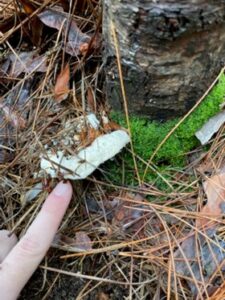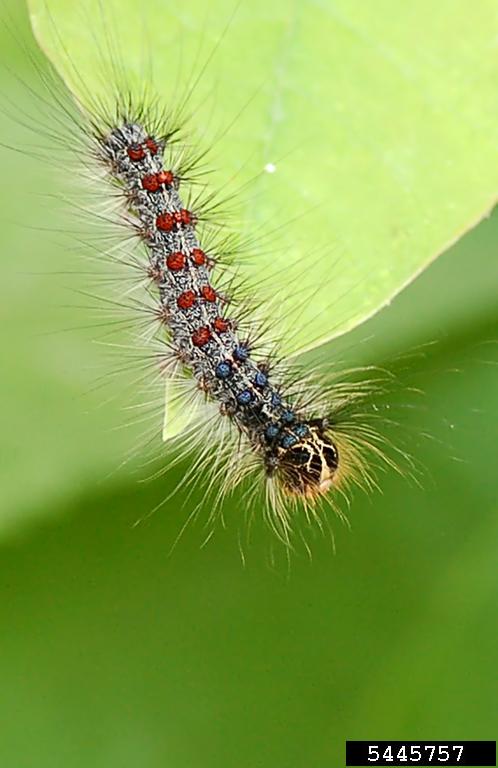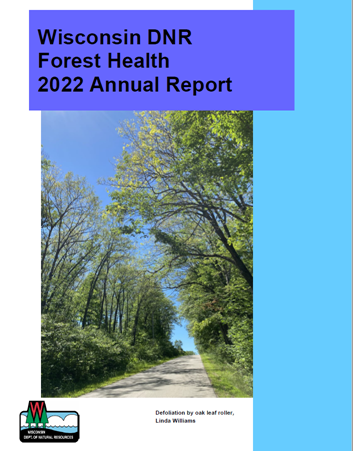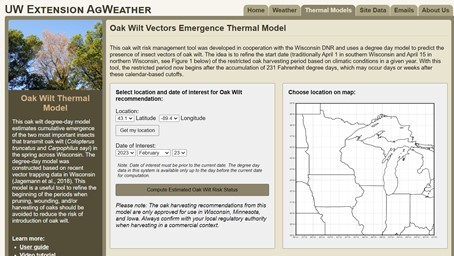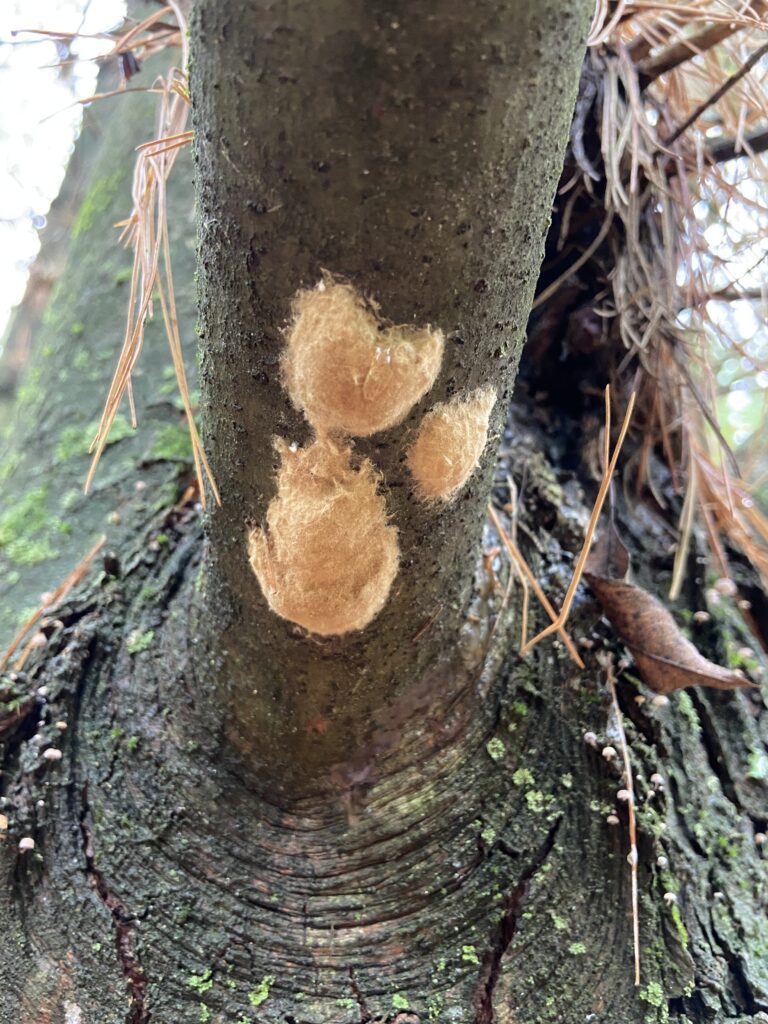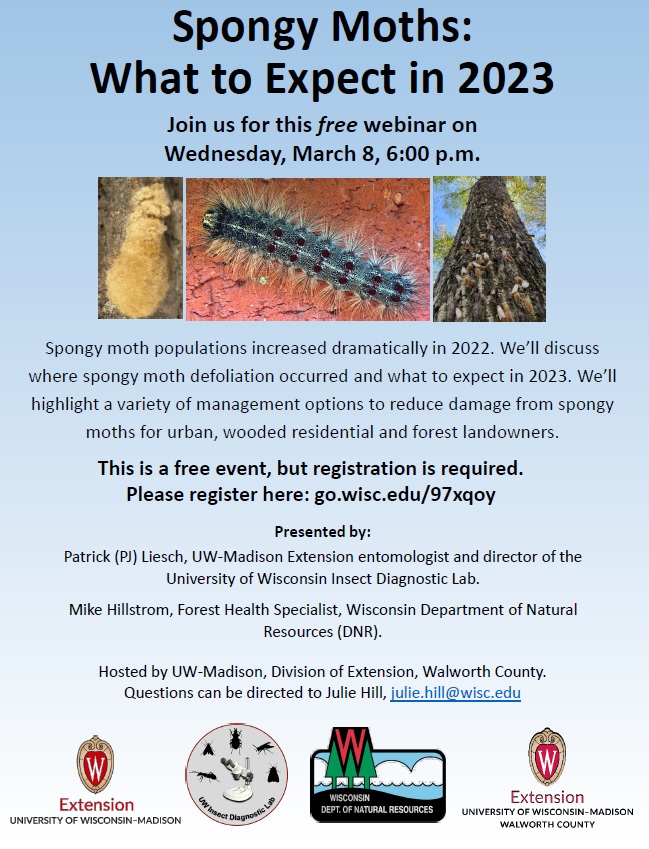By Bill McNee, Forest Health Specialist, Oshkosh, Bill.Mcnee@wisconsin.gov or 920-360-0942
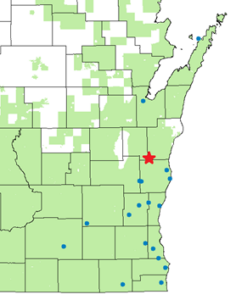
Sites where EAB biological controls have been recovered as of March 2023. The Spathius galinae recovery site is indicated by a red star. Blue dots show Tetrastichus planipennisi recovery sites. Municipal EAB detections are in green. Map: Wisconsin DNR
Two adult wasps, collected last December as pupae from an emerald ash borer (EAB) gallery at Kiel Marsh State Wildlife Area in Manitowoc County, have recently been identified as Spathius galinae.
This find marks the first time that S. galinae has been recovered in Wisconsin, confirming that the adult wasps released at this site over the last few years were able to attack EAB larvae and reproduce successfully. The “EAB wasps” were released as biological controls to help reduce EAB populations over the long term.
This wasp species has a longer ovipositor than the other EAB larval parasitoid currently released in Wisconsin (Tetrastichus planipennisi), allowing S. galinae to attack EAB larvae that are beneath thicker bark.
Spathius galinae was first released in Wisconsin in 2016, and approximately 1,000 of this species were released at Kiel Marsh in 2019 and 2020. Recovery surveys are conducted several years after initial releases, giving the wasps time to reproduce and spread. Continue reading “First Recovery of Emerald Ash Borer Enemy Made”


